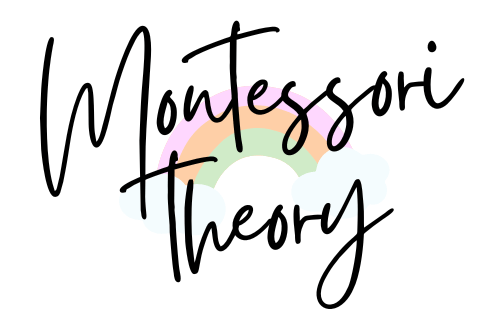Choosing a preschool for my little one was a mix of excitement and a bit of worry. We loved the Montessori way because it’s all about helping kids be independent, respectful, and curious about learning. But figuring out the right place wasn’t just about liking the idea; it meant asking the right questions to make sure the school was a good fit for what we wanted. And don’t be afraid to ask as many questions as you have in mind—it shows how much you care about your child’s success and education. Based on my own experience and some great chats I’ve had, here’s a simple list of questions to help other parents who are looking into Montessori schools for their kids.
Teacher Qualifications and Experience
- Teacher Qualifications: Ensure that the lead guides are Montessori certified through a MACTE-accredited program, which signifies a high standard of Montessori education.
- Experience: Inquire about the tenure of both teachers and assistants. While new staff isn’t automatically a concern, a high turnover rate might indicate issues within the school. Understanding the educators’ experience levels can offer insights into the learning environment.
-
- Are the lead guides Montessori certified through a MACTE-accredited program?
- How long have the lead guides and assistants been working at this school?
- What is the turnover rate among your teaching staff?
Classroom Size and Ratio
- Individualized Attention: Investigate the classroom size and student-teacher ratio. Smaller ratios are crucial for ensuring that your child receives the individualized attention that is a cornerstone of Montessori education.
-
- What is the student-to-teacher ratio in each classroom?
- How many students are there in a typical class?
Outdoor Time
- Nature and Play: Given the emphasis on nature and outdoor play in Montessori education, ask about the amount of time students spend outdoors, which supports children’s holistic development.
-
- How much time do students spend outdoors on a typical day?
- Can you describe the types of outdoor activities and play spaces available?
Parental Observation
- Observation Protocols: Confirm the school’s policy on parental observation to understand how it balances involvement with maintaining a focused learning environment. COVID-19 may have led to adjustments in these policies.
- Do you allow parents to observe the classroom? If so, what is the protocol?
- Have there been any changes to the observation policy due to COVID-19?
Daily Schedule and Work Periods
- Learning Structure: Understanding the daily schedule, especially the work periods, provides insight into the school’s approach to structuring learning and playtime. Montessori education values extended, uninterrupted work periods for fostering deep engagement.
-
- Can you walk me through a typical day’s schedule?
- How long are the uninterrupted work periods, and how are they structured?
Discipline and Handling Frustration
- Positive Discipline: Learn about the school’s discipline strategies and how they manage frustrated children, ensuring they align with Montessori principles of respect and self-regulation.
- What approaches do you use for discipline and managing frustration among students?
- Can you provide an example of how a typical conflict is resolved?
Classroom Composition
- Diverse Learning Environment: Inquire about the ages and number of students in each classroom. Mixed-age groups encourage peer learning and social development.
- What is the age range in each classroom?
- How do you ensure that mixed-age groups benefit all students?
Parent Expectations and Involvement
- Parental Role: Clarify expectations for parental involvement, including volunteering and home environment considerations, to ensure they align with your family’s capacity.
- What are the expectations for parental involvement in the school community?
- Are there any specific activities or workshops for parents?
Observing a Lesson
- Teaching Style: Request to observe a lesson to see the teacher’s interaction with students and their teaching style, offering a glimpse into the classroom dynamics.
- Is it possible to observe a lesson? If so, how can I arrange this?
- Can I see both a younger class and an older class in action?
Handling Active Children
- Activity and Movement: Specifically, ask how the school accommodates active children’s needs for movement and play during independent work times.
- How does the school accommodate children who are particularly active or need more physical play?
- What strategies do you use to engage active children during work periods?
Transition Support
- Adjustment and Transitions: Discuss how the school supports transitions, from the initial adjustment from home to preschool to transitions between activities within the school day, ensuring a smooth experience for your child.
- How do you support children in transitioning from home to preschool?
- What strategies are in place for helping children adjust to transitions between activities?
Special Needs Accommodations
- Inclusive Education: If applicable, inquire about the school’s ability to accommodate special needs or provide individualized learning plans, ensuring that all children can thrive in the Montessori environment.
- Does the school provide accommodations for children with special needs?
- Can you describe how individualized learning plans are developed and implemented?
Accreditation
- Commitment to Standards: Verify the school’s accreditation status (e.g., AMI, AMS) to ensure it adheres to recognized Montessori standards, indicating a commitment to quality education.
- Is your school accredited by AMS, AMI, or another Montessori organization?
- How does the school maintain its accreditation standards?
Talking with teachers, peeking into classrooms, and getting the scoop on what a school really believes in are key steps to finding the right place for your family. It’s all about making sure your little one’s first steps into learning are happy and positive. With these questions in hand, you’ll be able to dig deep and figure out if a Montessori preschool is the right spot for your child and fits just right with what your family believes in.


